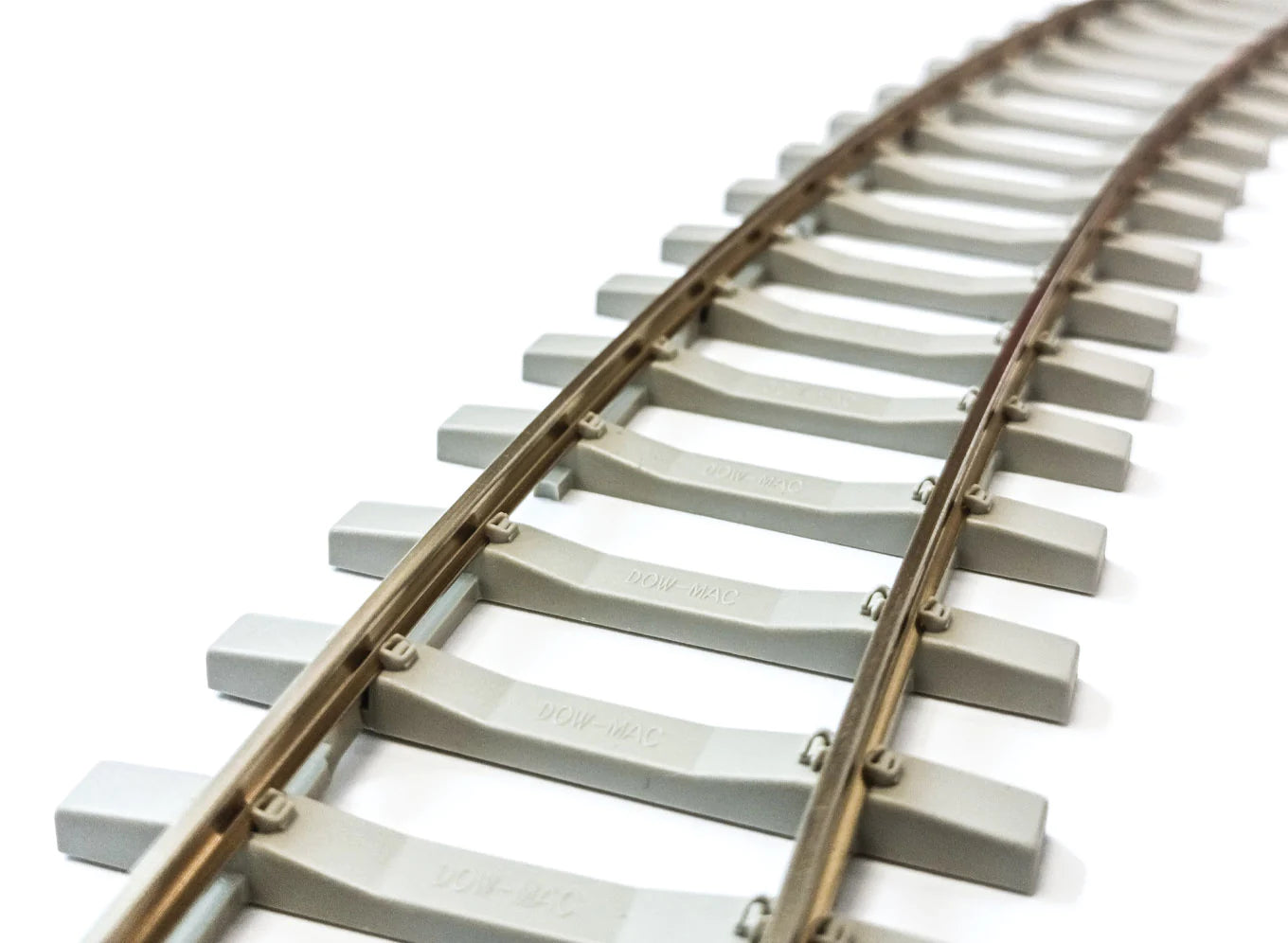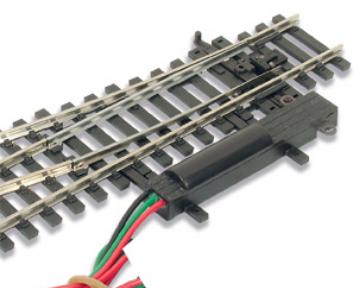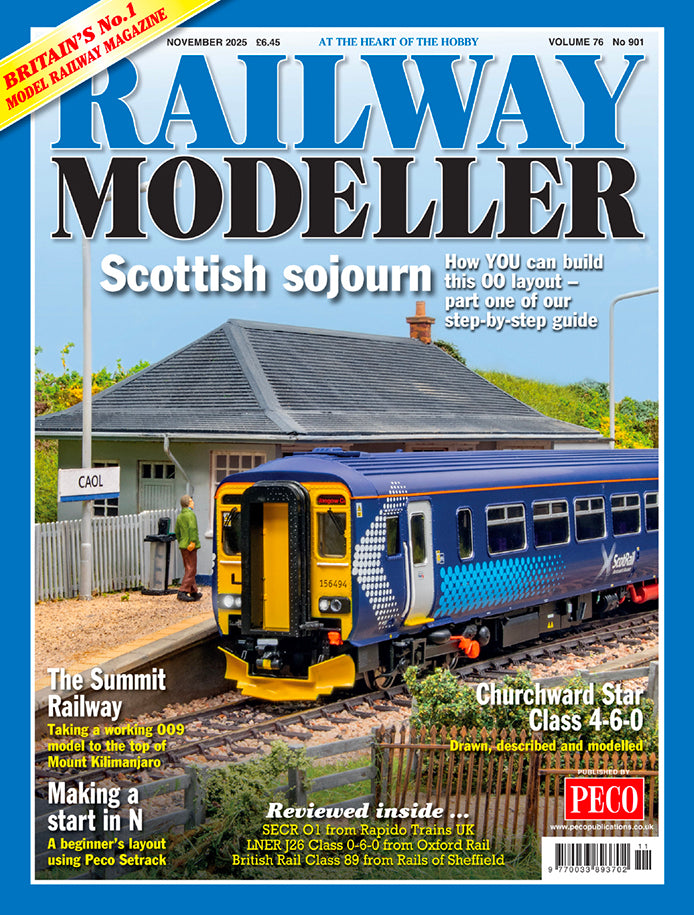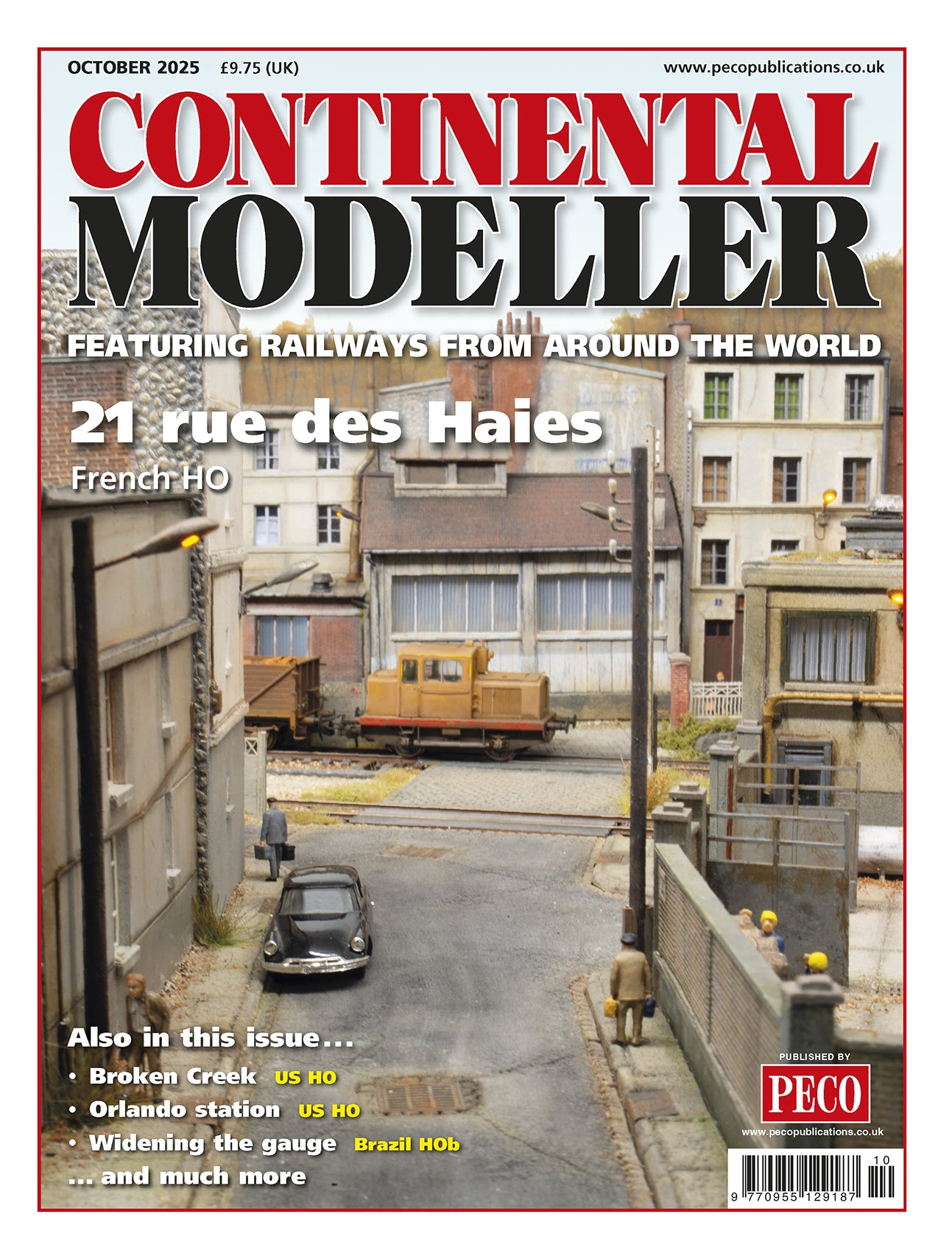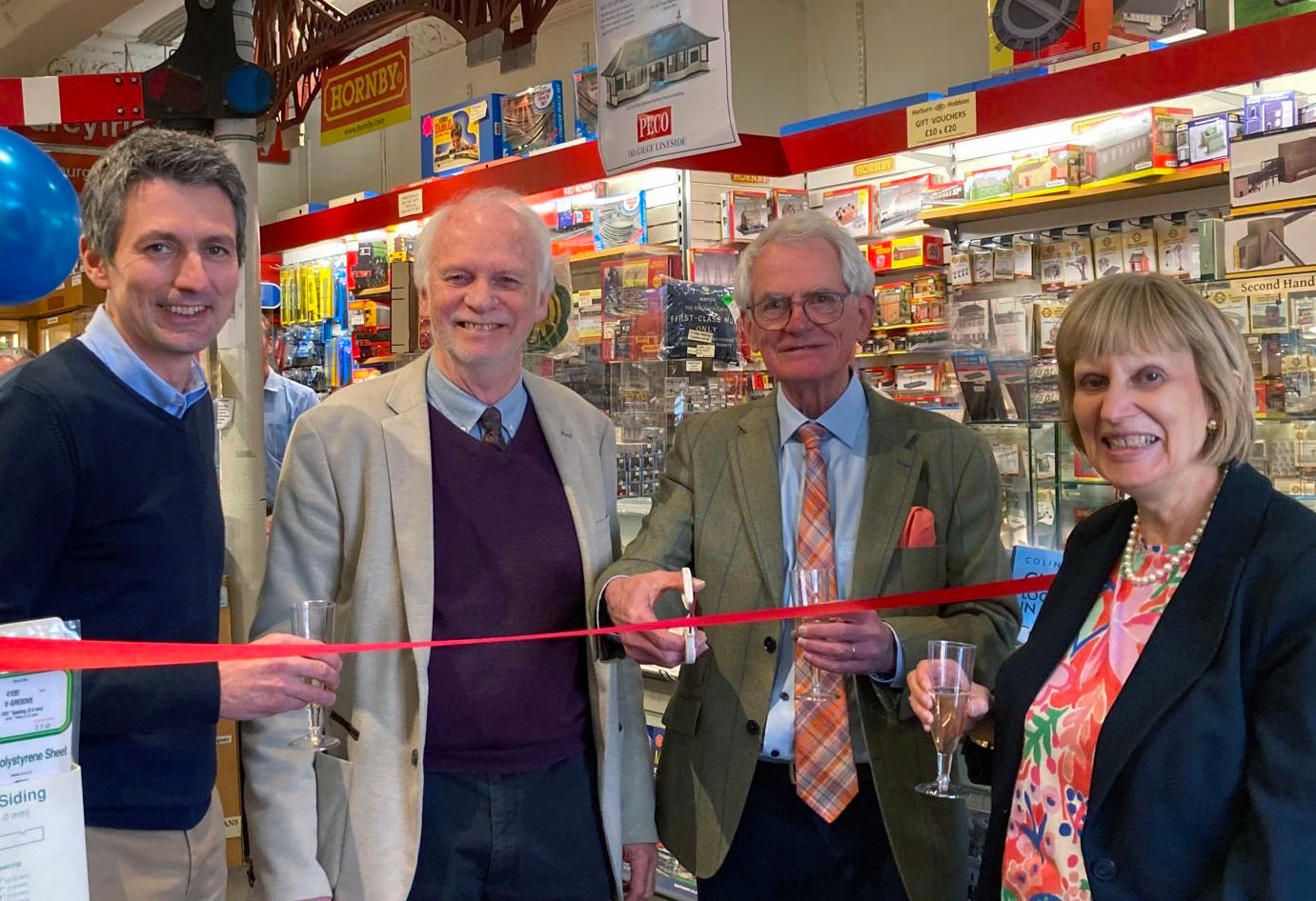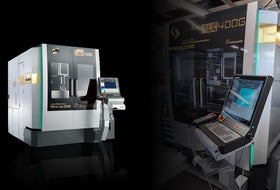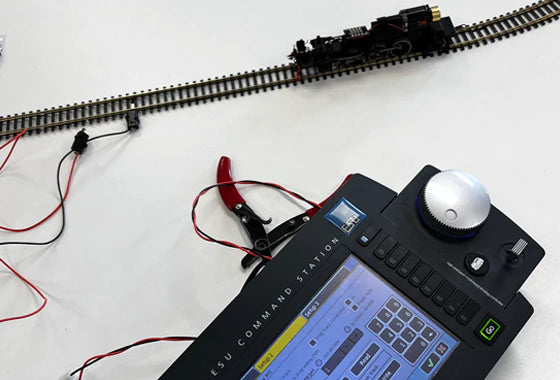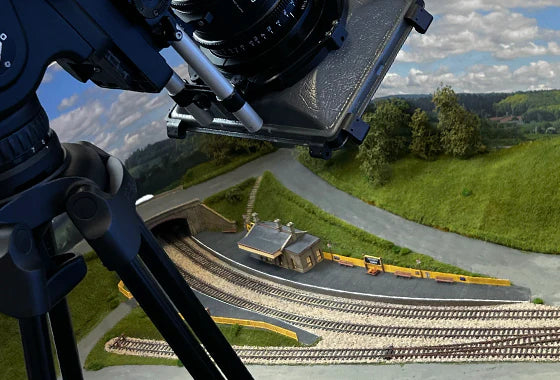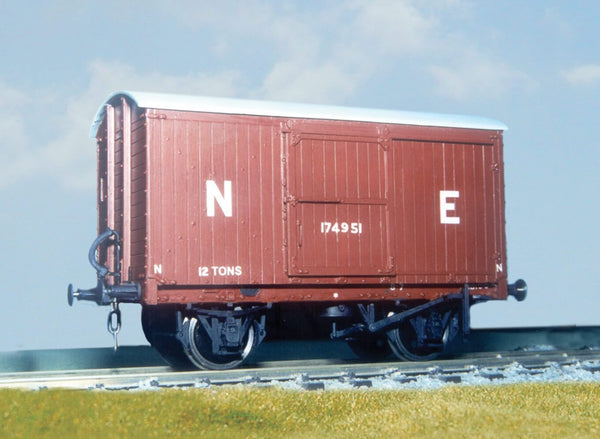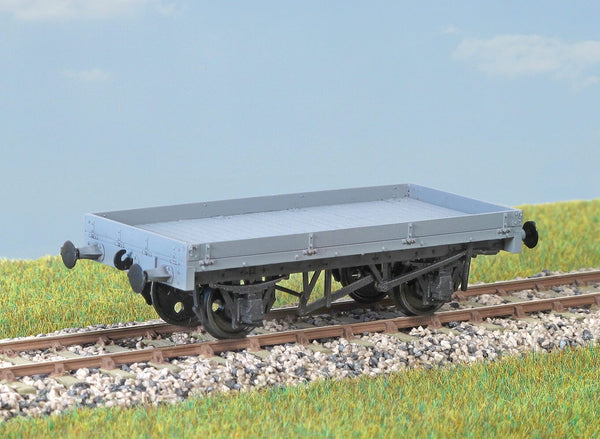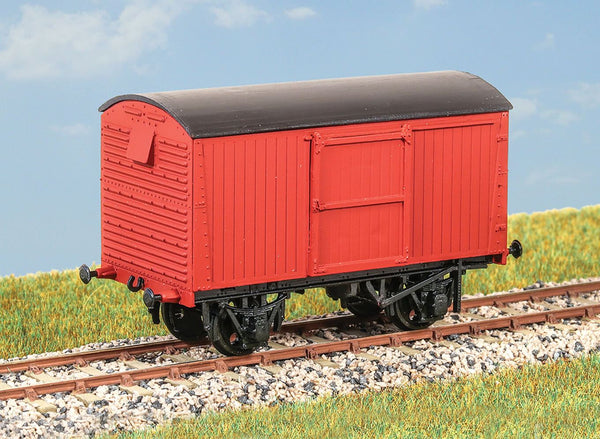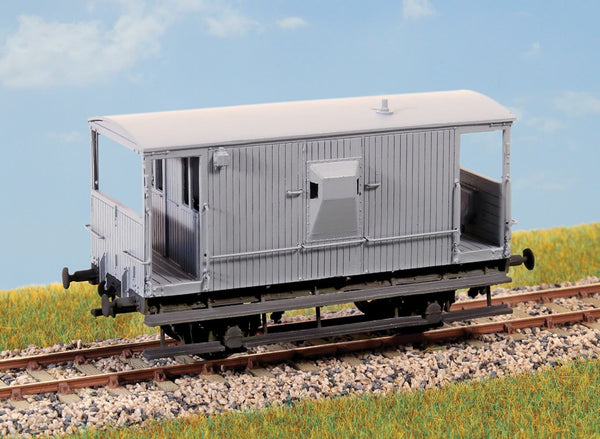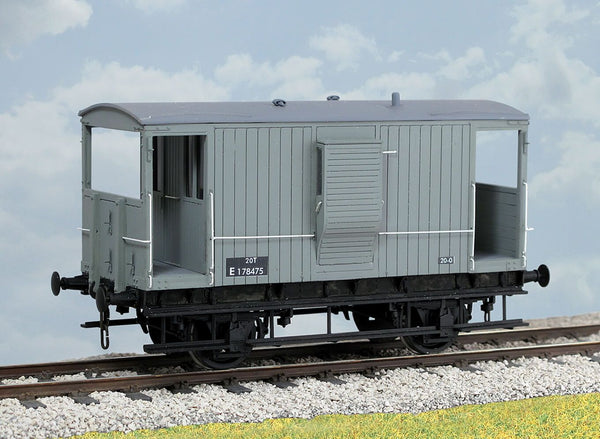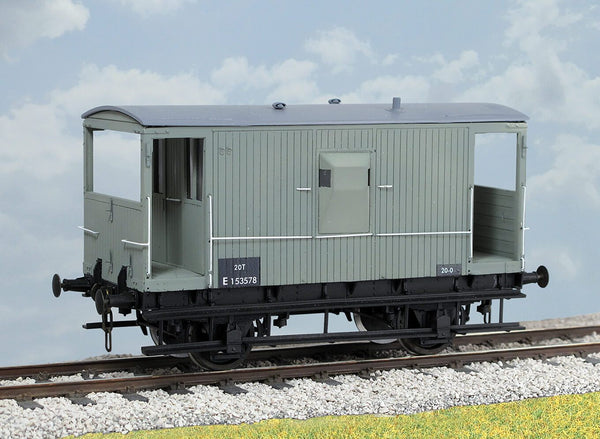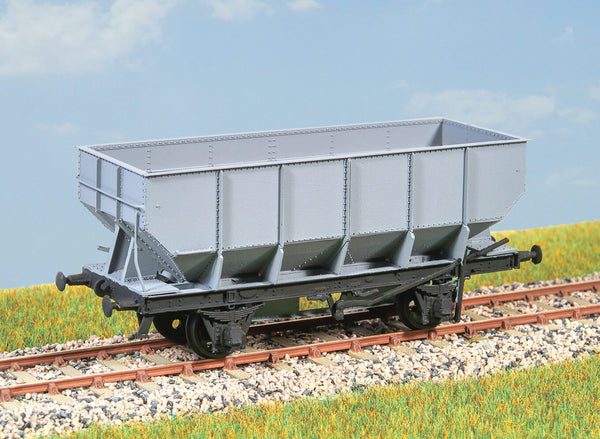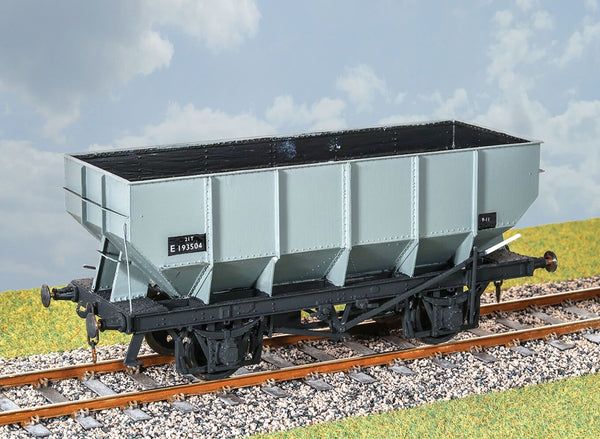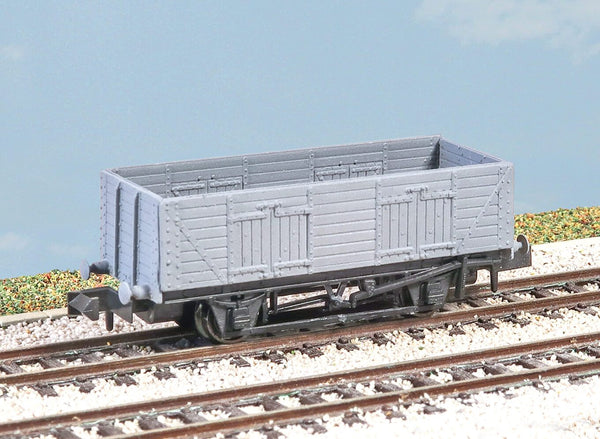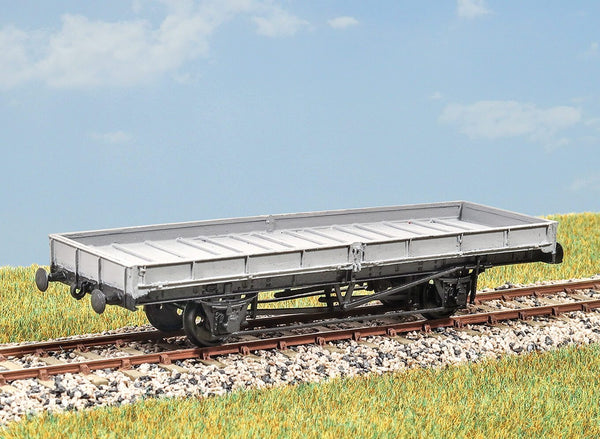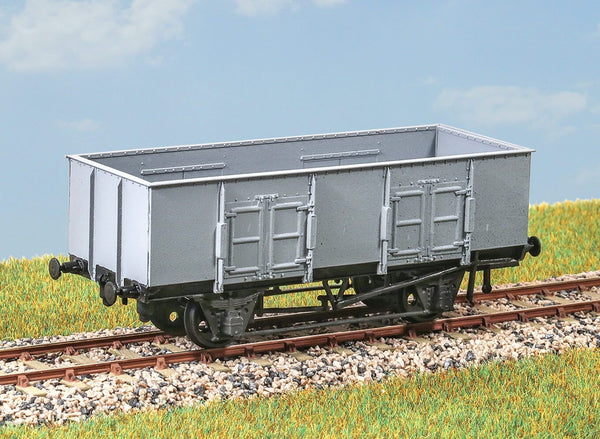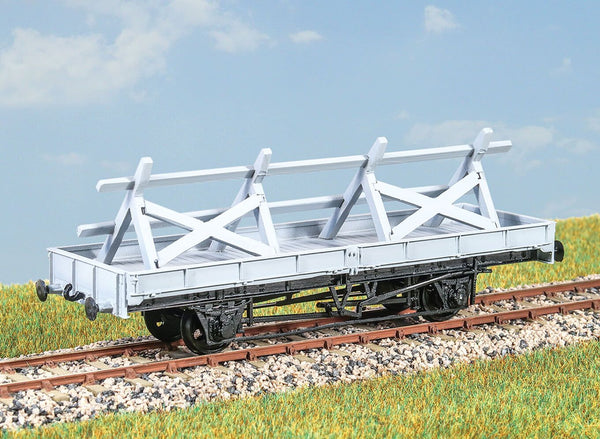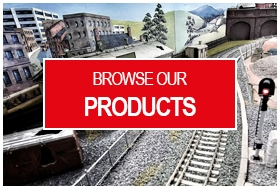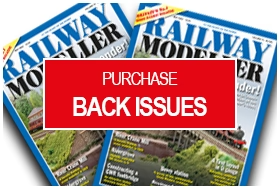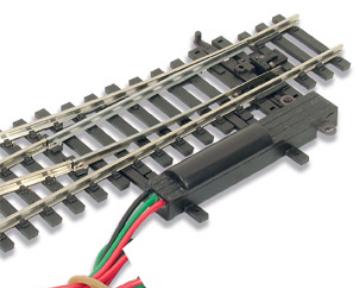BROWSE PECO PRODUCTS
Browse through our complete product portfolio.
738 Products Found
LNER 12ton Goods Van
2,167 of these vans were built in the 1930s for general goods traffic. They retained a wooden chassis, unusual for a 10-foot wheelbase chassis. After 1937 they were used throughout Britain. Substantially built they lasted into the 1960s. Transfers for LNER and BR. These finely moulded plastic wagon kits come complete with pin point axle wheels and bearings, 3 link couplings and transfers. This kit is supplied with pre-coloured moulded parts although painting can improve the appearance. Additional parts to enable the vehicle to be modelled incorporating modifications made to the prototypes during their working life are included where appropriate.
LNER 12ton Low Sided Wagon
Almost 1400 of these wagons (diagram 1/109) were built in the mid to late 1930s, to carry loads such as machinery, packing cases and road vehicles. Examples were in service into the early 1960s. These finely moulded plastic wagon kits come complete with pin point axle wheels and bearings. Glue and paint will be required, along with appropriate transfers. Additional parts to enable the vehicle to be modelled incorporating modifications made to the prototypes during their working life are included where appropriate.
LNER 12ton Van
Introduced in the late 1930s, these wagons (diagram 25) were used for general traffic until the late 1960s. Being equipped with the vacuum brake, they were suitable for express goods services. These finely moulded plastic wagon kits come complete with pin point axle wheels and bearings. Glue and paint will be required, along with appropriate transfers. Additional parts to enable the vehicle to be modelled incorporating modifications made to the prototypes during their working life are included where appropriate.
LNER 20ton Brake Van Toad E
900 of these vans were built between 1930 and 1936. Seen all over the former LNER system, they lasted in service into the mid 1960s. These finely moulded plastic wagon kits come complete with pin point axle wheels and bearings. Glue and paint will be required, along with appropriate transfers. Additional parts to enable the vehicle to be modelled incorporating modifications made to the prototypes during their working life are included where appropriate.
LNER 20ton Goods Brake Van 'Toad B 34'
These brake vans were built with distinctive wooden lookouts from 1924 to 1930. They remained common into the 1960s, mostly on local goods and coal trains. Transfers for LNER and BR. These finely moulded plastic wagon kits come complete with pin point axle wheels and bearings, 3 link couplings and transfers. This kit is supplied with pre-coloured moulded parts although painting can improve the appearance. Additional parts to enable the vehicle to be modelled incorporating modifications made to the prototypes during their working life are included where appropriate.
LNER 20ton Goods Van Toad
Built between 1930 and 1935, around 900 were constructed. They were a successful design and many lasted into the 1960s, mostly on the Eastern Region. Transfers for LNER and BR. These finely moulded plastic wagon kits come complete with pin point axle wheels and bearings, 3 link couplings and transfers. This kit is supplied with pre-coloured moulded parts although painting can improve the appearance. Additional parts to enable the vehicle to be modelled incorporating modifications made to the prototypes during their working life are included where appropriate.
LNER 20ton Hopper Wagon
13,645 of these wagons were built. Features the unique LNER brake gear. Represents the batch of 409 built by Hurst Nelson in 1936. Examples lasted into the 1970s. These finely moulded plastic wagon kits come complete with pin point axle wheels and bearings. Glue and paint will be required, along with appropriate transfers. Additional parts to enable the vehicle to be modelled incorporating modifications made to the prototypes during their working life are included where appropriate.
LNER 20ton Hopper Wagon
13,645 of these hoppers were built, this kit representing one from the first batch of 409 built in 1936. Featuring riveted construction and LNER brake gear, many lasted into the 1970s. Transfers for LNER and BR. These finely moulded plastic wagon kits come complete with pin point axle wheels and bearings, 3 link couplings and transfers. This kit is supplied with pre-coloured moulded parts although painting can improve the appearance. Additional parts to enable the vehicle to be modelled incorporating modifications made to the prototypes during their working life are included where appropriate.
LNER 20ton Loco Coal Wagon
A standard 1930s design, they carried coal to the company’s loco depots. Used by BR for general coal traffic. Withdrawn around 1960. These finely moulded plastic wagon kits come complete with pin point axle wheels. Glue and paint will be required, along with appropriate transfers .
LNER 20ton Plate Wagon
Among the first with an all welded body, these wagons (diagram 1/123) were widely used for carrying steel plate and other traffic such as motor cars, farm machinery and large packing cases. Period 1940 to mid 1970s. These finely moulded plastic wagon kits come complete with pin point axle wheels and bearings. Glue and paint will be required, along with appropriate transfers. Additional parts to enable the vehicle to be modelled incorporating modifications made to the prototypes during their working life are included where appropriate.
LNER 21ton Loco Coal Wagon
Constructed in the late 1930s, these were a standard design of loco coal wagon (diagram 207). In the 1950s, they were used for general coal traffic and were finally withdrawn in the mid 1960s.
These finely moulded plastic wagon kits come complete with pin point axle wheels and bearings. Glue and paint will be required, along with appropriate transfers. Additional parts to enable the vehicle to be modelled incorporating modifications made to the prototypes during their working life are included where appropriate.
LNER 21ton Trestle Wagon
Converted both before and after nationalisation (diagram 1/217) from standard plate and double bolster wagons to carry steel plates too wide to be loaded flat. Period mid 1940s to early 1970s. These finely moulded plastic wagon kits come complete with pin point axle wheels and bearings. Glue and paint will be required, along with appropriate transfers. Additional parts to enable the vehicle to be modelled incorporating modifications made to the prototypes during their working life are included where appropriate.
